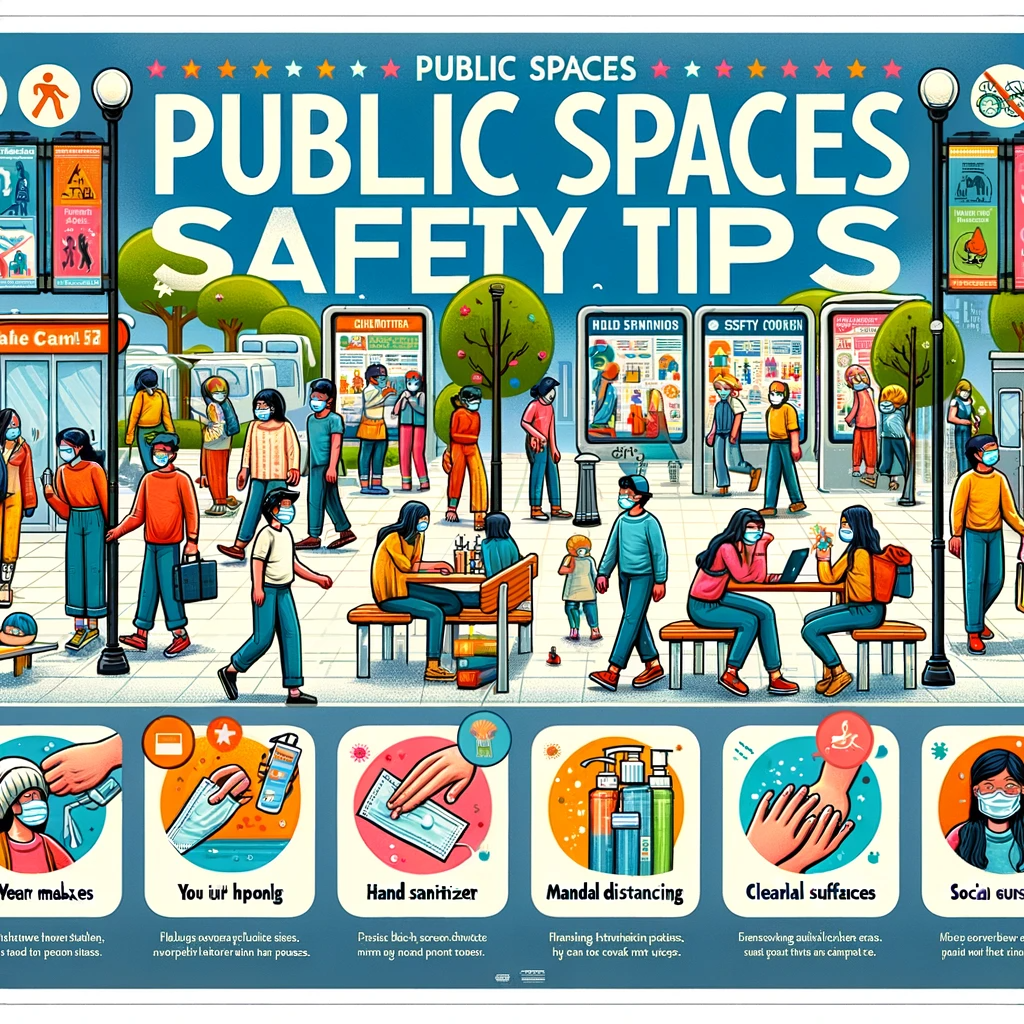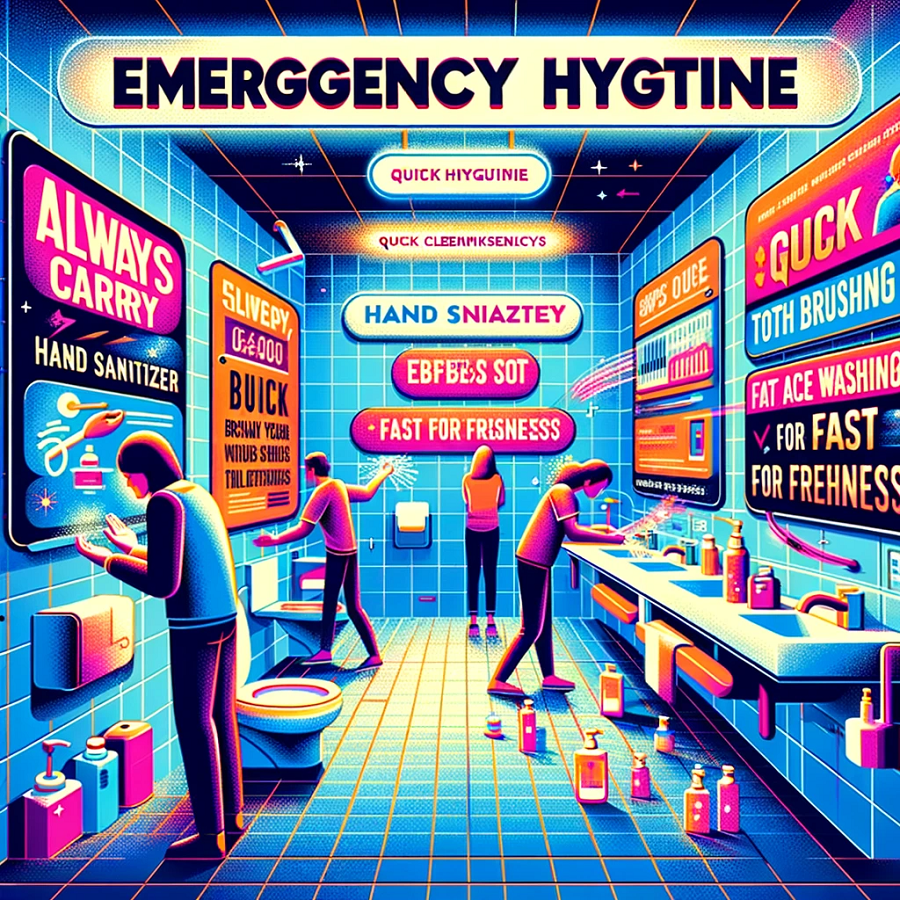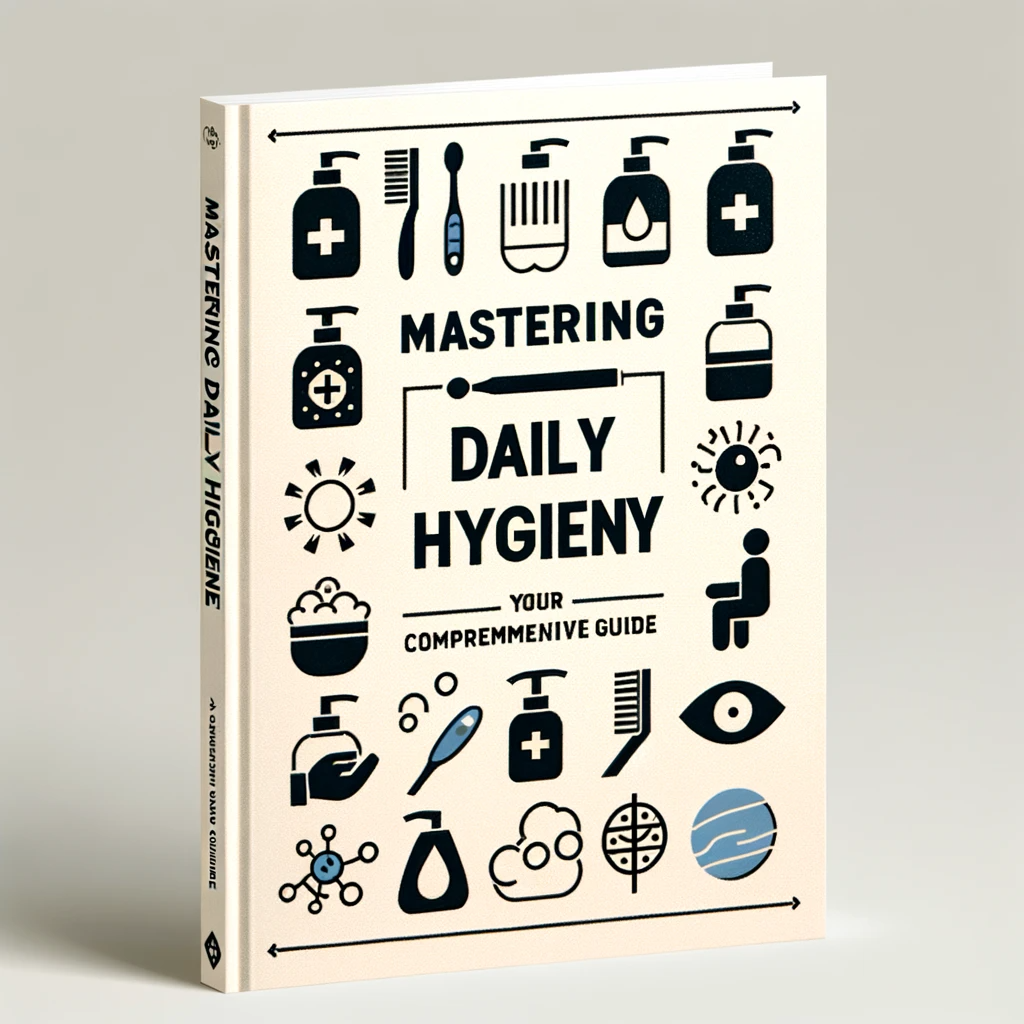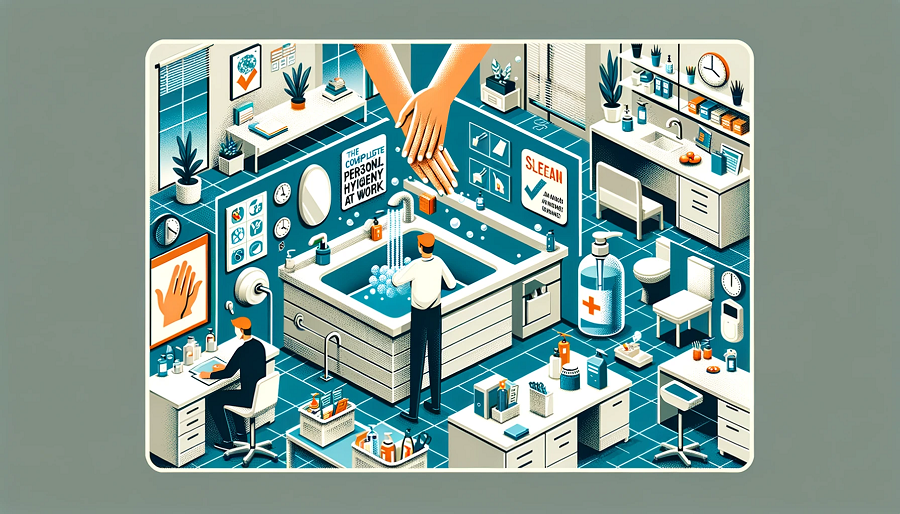Embarking on a journey, whether it’s a family vacation, a solo adventure, or a business trip, brings with it the excitement of exploring new places and cultures. However, maintaining good hygiene while on the go is a crucial aspect often overlooked amidst the thrill of travel. This comprehensive guide delves into the various facets of travel hygiene, offering practical tips and strategies to ensure you stay clean, healthy, and comfortable throughout your travels. From packing smart hygiene essentials to navigating hygiene challenges in remote destinations, and ensuring kids’ cleanliness to managing hygiene needs during business travels, this guide covers it all. Our aim is to equip you with the knowledge and tools necessary for tackling hygiene-related challenges, enabling you to focus on the joys of your journey without compromising on health and well-being. So, let’s dive in and discover how to maintain impeccable hygiene standards wherever your travels may take you.
| Category | Tips |
|---|---|
| General Hygiene | – Carry a travel-sized hand sanitizer and use it frequently.<br> – Pack a quick-dry towel for convenience.<br> – Use wet wipes for quick clean-ups. |
| Packing Essentials | – Include multipurpose items like biodegradable soap.<br> – Pack travel-sized toiletries to save space.<br> – Carry a separate waterproof bag for hygiene products. |
| Food and Water Safety | – Choose well-cooked meals and bottled water in high-risk areas.<br> – Opt for busy eateries with good hygiene standards.<br> – Avoid raw foods and salads when unsure about water safety. |
| Accommodation Hygiene | – Use flip-flops in shared showers.<br> – Clean high-touch surfaces in hotel rooms with disinfectant wipes.<br> – Consider using a sleep sack in hostels for added cleanliness. |
| Hygiene in Transit | – Keep hand sanitizer and wipes handy in public transport.<br> – Stay hydrated and use moisturizer on long flights.<br> – Clean your seating area with disinfectant wipes, especially on airplanes. |
| Kids’ Hygiene | – Pack child-friendly hygiene products.<br> – Teach kids the importance of hand washing.<br> – Carry extra snacks and water for them. |
| Remote Area Hygiene | – Use waterless products like dry shampoo.<br> – Practice Leave No Trace principles in nature.<br> – Carry all trash out with you. |
| Adventure Travel Hygiene | – Choose lightweight, multipurpose hygiene items.<br> – Use moisture-wicking clothing for comfort.<br> – Stay prepared with a basic first-aid kit. |
| Business Travel Hygiene | – Keep a separate kit for professional items like a high-quality razor and iron.<br> – Refresh with breath mints and facial wipes during the day.<br> – Stay aware of local dining customs for business meals. |
| Eco-Friendly Practices | – Opt for biodegradable and refillable products.<br> – Conserve water with shorter showers and turning off taps when not in use.<br> – Choose accommodations that support sustainable practices. |
Travel Hygiene: Essential Tips for Staying Fresh During Your Adventures
Understanding the Basics of Travel Hygiene Travel hygiene is crucial in maintaining health and comfort while exploring new places. It involves practices that help you stay clean and reduce the risk of illness.
Packing Essentials for Hygiene Pack lightweight, multipurpose hygiene products like biodegradable soap, hand sanitizer, and wet wipes. Don’t forget a quick-dry towel and a small first-aid kit.
Staying Clean on the Move Regularly clean your hands, especially before eating. Use hand sanitizer when water isn’t available. Stay hydrated to keep your skin healthy.
Dealing with Limited Resources In places with limited access to water, prioritize cleaning your hands, face, and areas prone to bacteria. Wet wipes can be a lifesaver in these situations.
Packing Smart: Hygiene Essentials for Every Traveler
Choosing the Right Products Opt for travel-sized, multipurpose hygiene products. Consider the climate of your destination when selecting items like sunscreen and insect repellent.
Organizing Your Hygiene Kit Use a waterproof bag to organize your hygiene essentials. This makes them easily accessible and prevents leaks.
Must-Have Items Your kit should include toothbrush and paste, deodorant, soap, shampoo, conditioner, sunscreen, lip balm, and a quick-dry towel.
Eco-Friendly Options Consider environmentally friendly products like biodegradable soap and bamboo toothbrushes to reduce your travel footprint.
Navigating Public Transport: Hygiene Hacks for the Savvy Traveler
Staying Clean in Transit Use hand sanitizer frequently and avoid touching your face. Keep a pack of disinfectant wipes handy for surfaces you need to touch.
Hygiene in Air Travel Stay hydrated on flights, and use moisturizer to combat dry cabin air. Clean your tray table and armrests with disinfectant wipes.
Train and Bus Travel Tips In trains and buses, try to sit in less crowded areas. Keep your personal items in clean, designated spaces and avoid placing them on the floor.
Personal Space Awareness Respect others’ personal space and expect the same in return. Wearing a mask can be a good practice in crowded, enclosed spaces.
Eco-Friendly Travel Hygiene: Sustainable Practices for the Conscious Explorer
Choosing Sustainable Products Opt for biodegradable soaps, shampoos, and toothpaste. Reusable travel bottles reduce plastic waste.
Water Conservation Techniques Take shorter showers and turn off the tap while brushing your teeth. Use a refillable water bottle to stay hydrated.
Dealing with Waste Responsibly Dispose of hygiene products responsibly. Use recycling bins when available and avoid leaving any waste in natural environments.
Supporting Eco-Friendly Accommodations Choose accommodations that practice sustainability, such as using solar energy or providing eco-friendly hygiene products.
Staying Healthy While Traveling: Hygiene Best Practices
Importance of Hand Hygiene Regular hand washing is the first line of defense against germs. Always carry hand sanitizer for situations where soap and water are not available.
Food and Water Safety Be cautious with street food and tap water in areas known for water-borne illnesses. Opt for bottled water and well-cooked meals.
Sleep Hygiene While Traveling Ensure you get enough rest. Choose clean, well-reviewed accommodations and use a sleep mask and earplugs for uninterrupted sleep.
Preventing Common Travel Illnesses Stay up to date with vaccinations and carry a basic first-aid kit. Be aware of symptoms like diarrhea and respiratory infections and know how to respond.
Hygiene On-the-Go: How to Stay Clean in Hostels and Hotels
Choosing the Right Accommodation Research and choose accommodations with good hygiene reviews. Consider places that offer private bathrooms for added cleanliness.
Personal Hygiene in Shared Spaces In shared spaces like hostels, wear flip-flops in showers and keep your personal items secure and clean.
Room Cleanliness Tips Upon arrival, check the cleanliness of your room. Use disinfectant wipes for high-touch surfaces like doorknobs and remote controls.
Dealing with Laundry Pack a travel laundry bag. Use hotel laundry services or find local laundromats to keep your clothes clean.
Dining Out Abroad: Food Hygiene Tips for Travelers
Choosing Safe Eateries Eat where locals eat, as these places are likely to have good hygiene standards. Look for busy restaurants with high turnover.
Street Food Safety Street food is a part of the travel experience but choose vendors who prepare food hygienically and cook it fresh in front of you.
Drinking Water Precautions In regions where tap water is unsafe, opt for bottled water, even for brushing teeth. Avoid ice in drinks unless you’re sure it’s made from purified water.
Handling Food Allergies If you have food allergies, learn how to communicate them in the local language. Carry allergy cards that explain your condition in detail.
Personal Hygiene Kits: What to Include for Your Next Trip
Basic Personal Hygiene Items Your kit should include a toothbrush, toothpaste, deodorant, soap, shampoo, and a small towel. Consider the climate and activities planned for your trip.
Feminine Hygiene Products Pack sufficient feminine hygiene products for your trip. In some places, these might be hard to find or different from what you’re used to.
Travel-Sized First Aid Kit Include basic first aid supplies like band-aids, antiseptic wipes, pain relievers, and any prescription medications you need.
Extras for Comfort Consider items like lip balm, moisturizer, and sunblock. Pack a small sewing kit for minor repairs and a compact mirror.
Travel Hygiene for Kids: Keeping the Little Ones Clean and Safe
Pre-Trip Preparation Before traveling, educate your kids about the importance of cleanliness. Pack child-friendly hygiene products like alcohol-free hand sanitizer and gentle soaps.
Hygiene Kits for Kids Create a personalized hygiene kit for each child. Include items like their toothbrush, mild soap, shampoo, and fun hand towels.
Dealing with Dirt and Messes Kids are prone to getting dirty. Carry wet wipes and a change of clothes for quick clean-ups.
Food Hygiene for Children Be extra cautious with food and water for kids. Stick to safe, well-cooked foods and bottled water to prevent stomach upsets.
Overcoming Hygiene Challenges in Remote Destinations
Water Scarcity In areas with limited water, use waterless bathing products like dry shampoo and cleansing wipes. Prioritize cleaning key areas like hands, face, and underarms.
Dealing with Limited Facilities When facilities are sparse, be prepared to use alternatives like portable toilets and solar showers.
Waste Management Carry all your trash, including hygiene products, until you can dispose of them properly. Use biodegradable products whenever possible.
Staying Clean in Nature Respect the environment by using eco-friendly products. Avoid bathing in natural water sources with soaps, even if biodegradable.
Keeping Hygiene Top-of-Mind During Adventure Travel
Hygiene in Harsh Environments In extreme environments, focus on the essentials like hand hygiene and oral care. Use products designed for water conservation.
Packing for Adventure Pack lightweight, multipurpose hygiene items. Consider the challenges of your destination when choosing your hygiene products.
Staying Clean on the Trail When hiking or trekking, use wet wipes and hand sanitizer to stay clean. Pack a lightweight towel for quick drying.
Dealing with Sweat and Odor Choose breathable, moisture-wicking clothing to manage sweat. Carry travel-sized deodorant and refresh wipes for a quick clean-up.
Hygiene Tips for Business Travelers: Staying Professional on the Go
Packing a Business Trip Hygiene Kit Include essentials like a high-quality razor, shaving cream, and a compact iron or steamer for your clothes.
Looking Fresh for Meetings Keep a mini hygiene kit in your work bag with items like breath mints, facial blotting papers, and a small comb or brush.
Managing Jet Lag and Appearance Stay hydrated and rest as much as possible during flights to look refreshed. Use eye drops and moisturizer to combat dry cabin air.
Dining Etiquette Abroad Research dining customs for your destination. Always have hand sanitizer and use it discreetly before meals.
Final Thoughts:
Maintaining hygiene while traveling is more than a mere convenience; it’s a vital aspect of ensuring a safe, enjoyable, and healthy journey. Whether you’re navigating bustling cities, embracing the wilderness in remote destinations, or conducting business abroad, the importance of travel hygiene cannot be overstated. By arming yourself with the right knowledge, tools, and practices outlined in this guide, you can effectively manage hygiene-related challenges. Remember, being well-prepared not only protects your health but also enhances your overall travel experience, allowing you to immerse fully in the adventures and opportunities that await. So, pack your hygiene essentials, embrace these practical tips, and set forth on your travels with confidence, knowing you’re well-equipped to stay clean and healthy on the go.
FAQs
- What are the must-have items in a travel hygiene kit?
- A basic travel hygiene kit should include items like a toothbrush, toothpaste, soap, hand sanitizer, wet wipes, deodorant, shampoo, and a quick-dry towel. Depending on your destination, you might also want to include sunscreen, insect repellent, and a basic first-aid kit.
- How can I maintain hygiene on long flights?
- On long flights, stay hydrated, use hand sanitizer regularly, and clean your immediate area (like the tray table) with disinfectant wipes. Consider using a moisturizer to combat dry cabin air, and try to walk around occasionally to boost circulation.
- What hygiene tips should I follow when eating street food while traveling?
- Choose busy street food vendors who cook food fresh in front of you. Avoid raw foods, and make sure that any meat is well-cooked. Always clean your hands before eating, preferably with hand sanitizer if soap and water are not available.
- How do I manage laundry while traveling?
- Pack a travel-sized laundry detergent and a portable laundry line for quick washes. Alternatively, use local laundromats or hotel laundry services. Packing clothing made of quick-drying fabrics can also be helpful.
- Are there special hygiene considerations for traveling with kids?
- Yes, pack child-friendly hygiene products like alcohol-free hand sanitizer and gentle soaps. Teach kids the importance of regular hand washing and carry snacks and water for them in case of limited access to clean food and drinks.
- What should I do for hygiene in remote or wilderness areas?
- Use biodegradable soap and avoid bathing or washing directly in natural water sources. Carry waste out with you, and use waterless products like dry shampoo and cleansing wipes where water is scarce.
- How can I stay hygienic in shared accommodations like hostels?
- Always wear flip-flops in shared bathrooms, keep your belongings in a clean, designated space, and use a sleep sack or travel bed liner for added cleanliness in shared beds.
- What are the best practices for hygiene during business travel?
- Pack a travel steamer or iron for clothing, keep a mini hygiene kit in your work bag, and stay refreshed with items like breath mints and facial blotting papers. Research dining customs and practice good food hygiene.
- How do I maintain hygiene during adventure travel?
- Opt for lightweight, multipurpose hygiene items. Use wet wipes and hand sanitizer for quick cleaning, and choose breathable, moisture-wicking clothing to manage sweat and odor.
- Can I maintain eco-friendly hygiene practices while traveling?
- Absolutely. Choose biodegradable and refillable hygiene products, conserve water whenever possible, and dispose of waste responsibly. Also, consider staying in eco-friendly accommodations that support sustainable practices.







